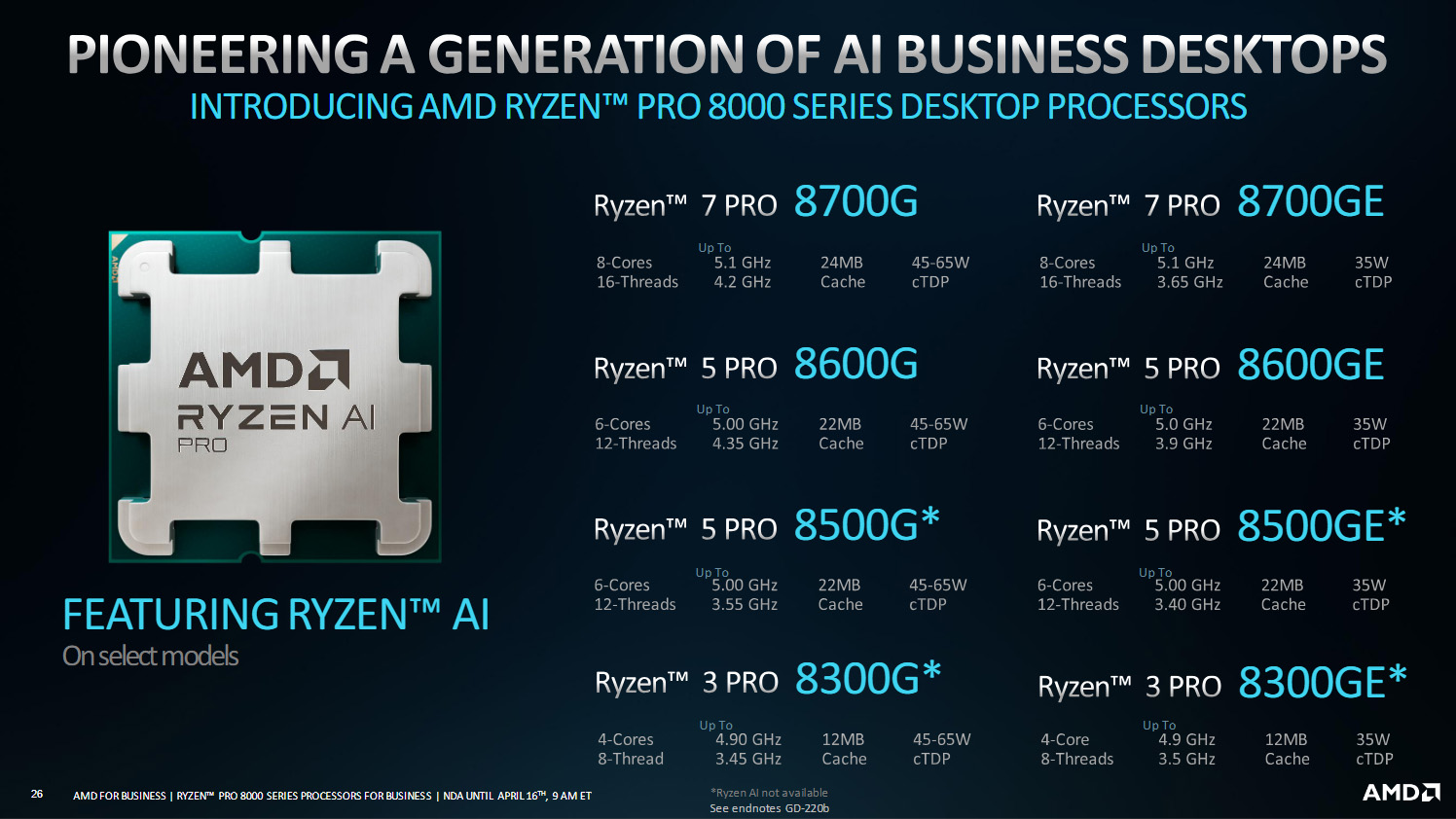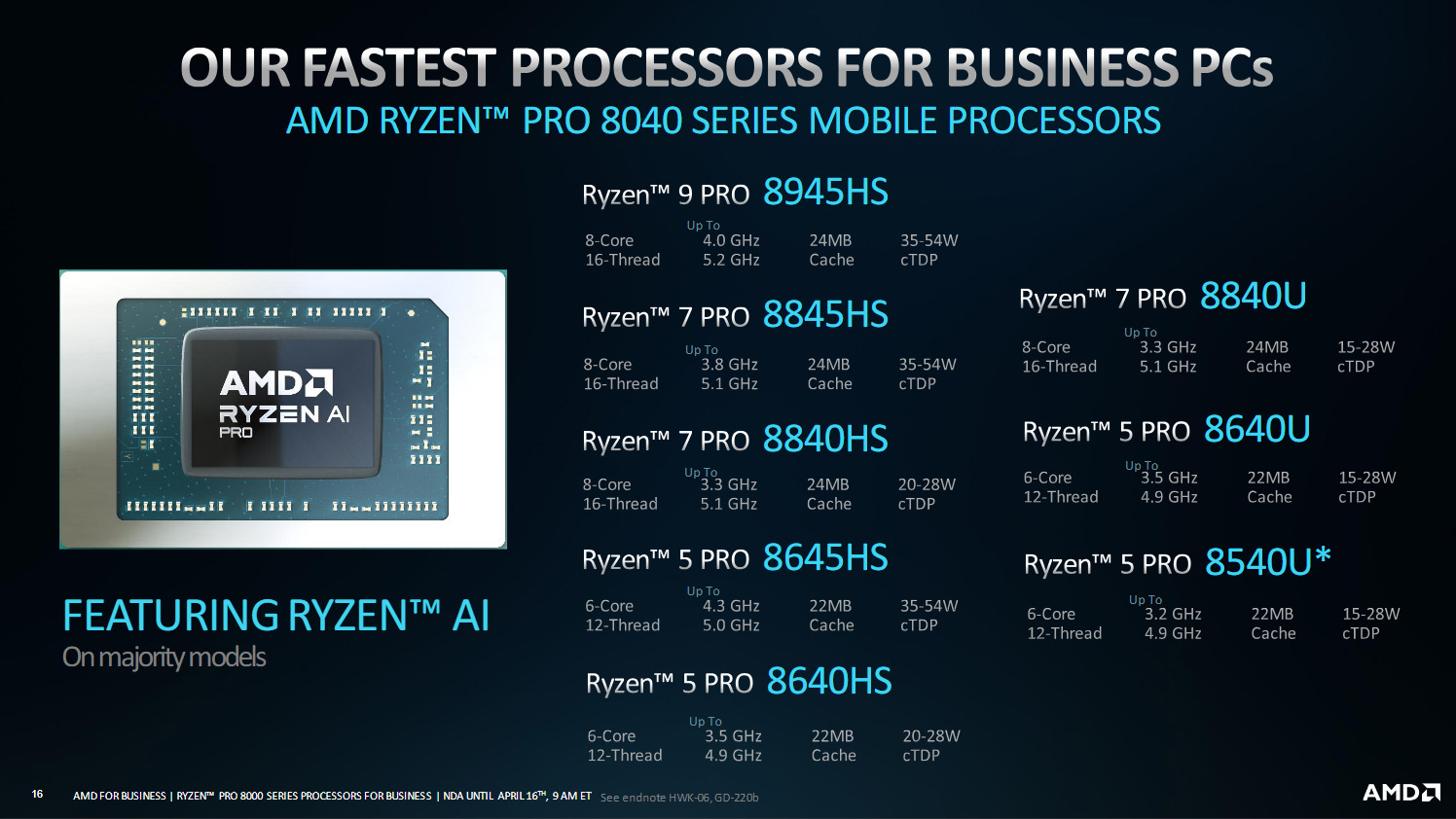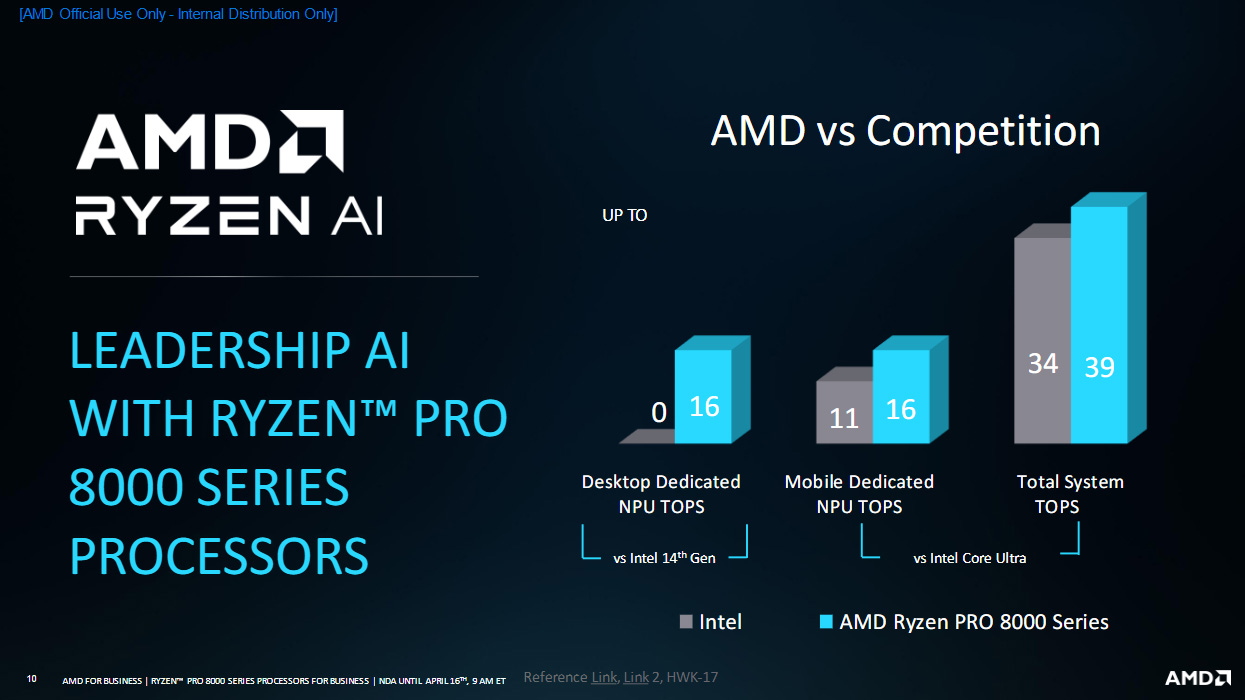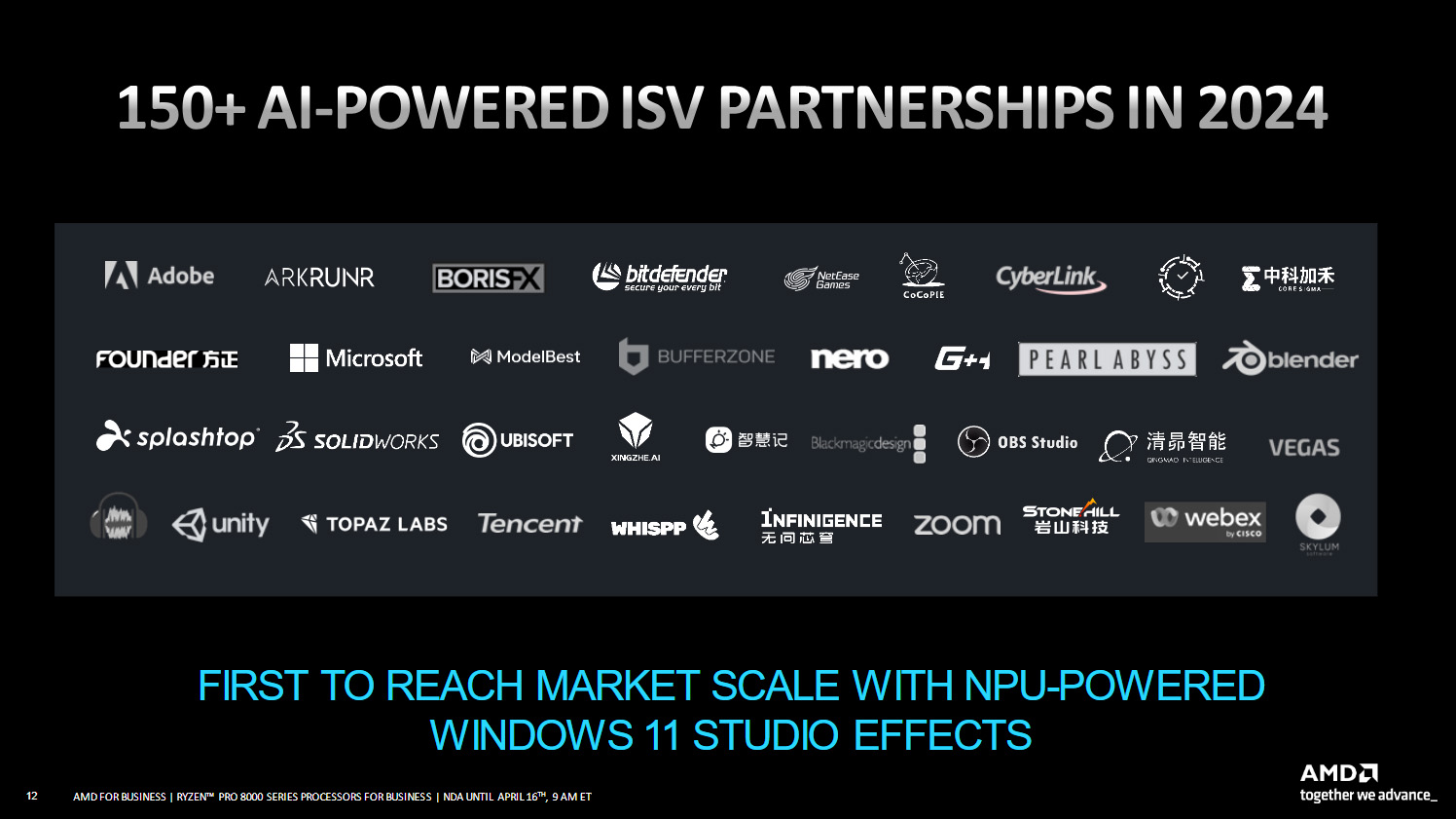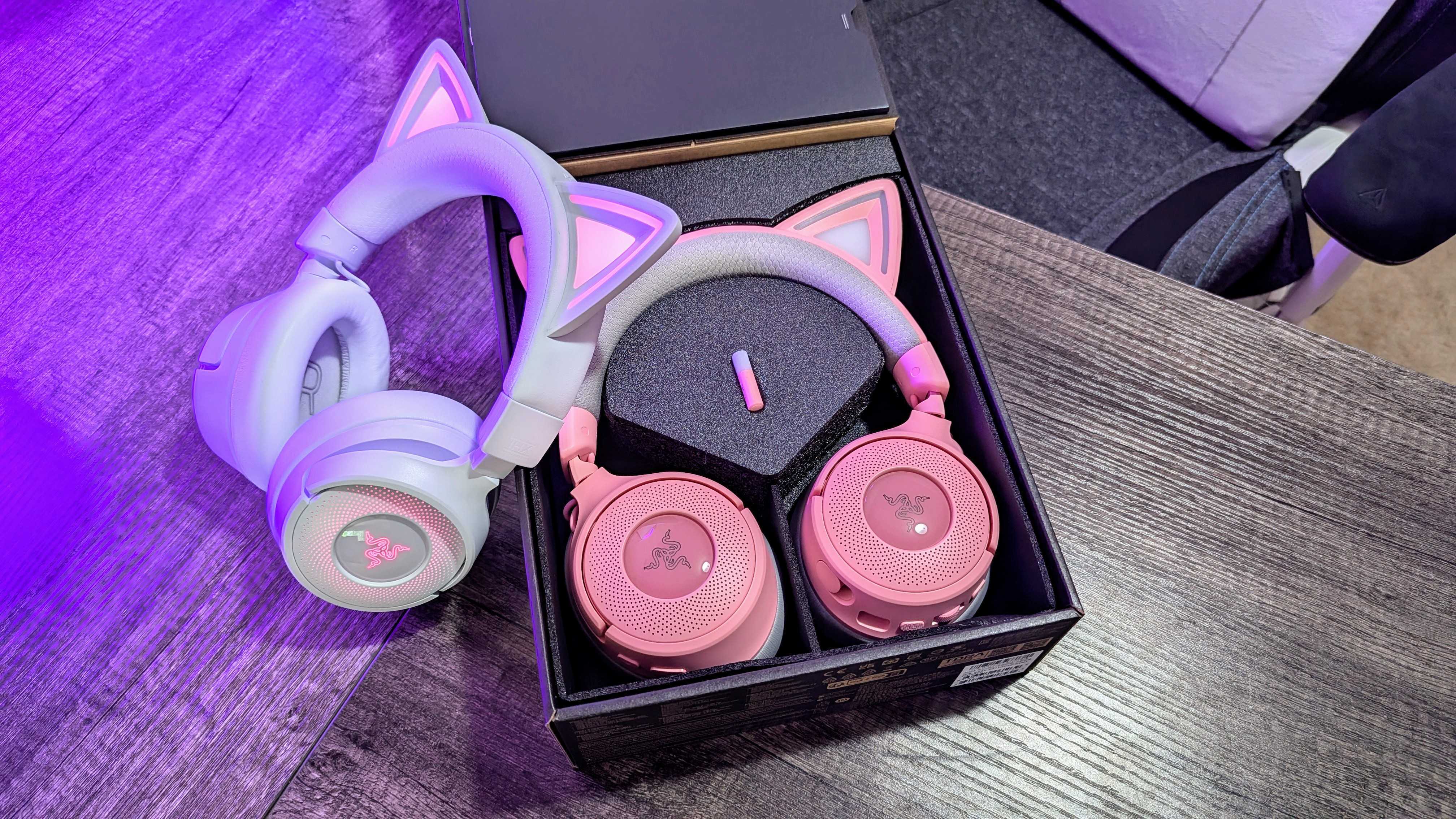AMD enters the race to the 'TOPS' with new NPUs for Ryzen AI laptops and desktops
AMD Ryzen PRO 8000/8040 Series processors bring Ryzen AI NPUs to desktops and mobile workstations for business.
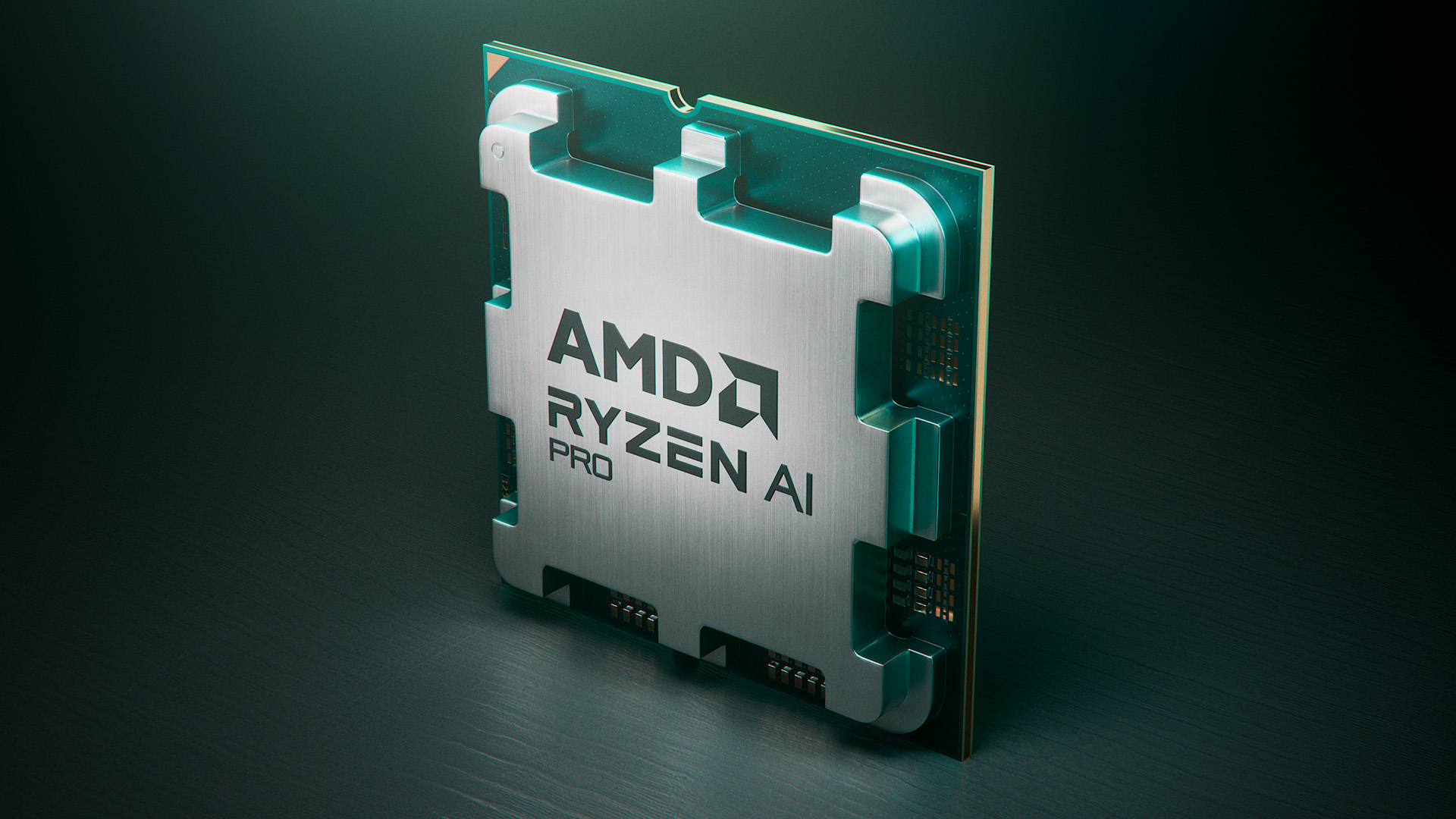
All the latest news, reviews, and guides for Windows and Xbox diehards.
You are now subscribed
Your newsletter sign-up was successful
What you need to know
- Upcoming AMD Ryzen AI PCs for business will utilize a brand-new range of desktop and mobile processors under the 'Ryzen PRO 8000' and 'Ryzen PRO 8040' titles, respectively.
- Variants of the new AMD processors with Ryzen AI support will use dedicated NPUs to handle AI-specific tasks and allow local inferencing without an Internet connection.
- AMD claims the new chips' total system performance reaches 39 TOPS, above the 34 TOPS currently offered by Intel Core Ultra processors but below the upcoming Qualcomm Snapdragon X Elite.
Although the exact definition of an AI PC varies between brands and manufacturers, the common link is the reliance on a physical Neural Processing Unit (NPU), which handles local processing for apps bolstered by artificial intelligence like Microsoft Copilot and its demanding 40 TOPS requirement. AMD isn't new to the category, as its Ryzen 8040 Series was all about AI when the mobile chips were announced for consumer laptops and portable devices at the end of 2023, launching into Q1 of 2024.
AMD is extending its XDNA NPU technology to commercial PCs designed for businesses with its new Ryzen PRO 8000 Series of Zen 4 desktop processors, which it defines as Accelerated Processing Units (APU.) AMD isn't coining a new term today, as APUs already exist with previous-generation AMD chips that combine a traditional CPU and GPU into a single die.
However, AMD's business-centric laptop and desktop chips will now include NPUs dedicated to handling AI-specific workloads in the PRO 8000 Series, alongside support for the latest Wi-Fi 7 standard for wireless networking and Bluetooth 5.4 for peripherals. Locally processed AI inference is the primary focus for AMD with these new processors, as it goes head-to-head with Intel to boast its implied performance improvements, at least with in-house testing on workstation laptops.
What's new with AMD Ryzen PRO 8000/8040?
Following AMD's Ryzen PRO 7000 Series, the new PRO 8000 Series for business desktops covers eight new APUs, though not all variants include Ryzen AI. Namely, the Ryzen 5 PRO 8500G and 8500GE, alongside the 3 PRO 8300G and 8300GE, still join the listing but presumably won't offer the same dedicated NPU based on AMD's footnote definitions, forcing them to rely on the CPU side for AI inferencing. The Ryzen 7 PRO and Ryzen 5 PRO chips featuring Ryzen AI support range from 8-core, 16-thread APUs running at up to 65W TDP to 6-core, 12-thread variants as low as 35W.
| Ryzen | 7 PRO 8700G | 5 PRO 8600G | 7 PRO 8700GE | 5 PRO 8600GE |
|---|---|---|---|---|
| Core / Thread | 8c/16t | 6c/12t | 8c/16t | 6c/12t |
| Frequency | 4.2GHz Up to 5.1GHz | 4.35GHz Up to 5.00GHz | 3.65GHz Up to 5.1GHz | 3.9GHz Up to 5.00GHz |
| Cache | 24MB | 22MB | 24MB | 22MB |
| TDP | 45 - 65W | 45 - 65W | 35W | 35W |
On the mobile side, the new AMD Ryzen PRO 8040 Series APUs for laptops and other compact devices contain a wider range of variants with -HS and -U processors, designed for performance and power efficiency, respectively. On the more powerful side, the -HS processors cover Ryzen 5 PRO, 7 PRO, and 9 PRO classification ranging from 8-core, 16-thread chips running at up to 54W TDP to -U variants with 6-core, 12-thread configurations as low as 15W.
The PRO models might look familiar to some, as the standard Ryzen 9 8945HS appears in configurations for the latest Razer Blade 14 gaming laptop refresh for 2024, itself supporting Ryzen AI. Similarly, a non-PRO Ryzen 7 8840HS appears in a new variant of the ASUS Zenbook 14 (UM3406HA), which is currently undergoing testing behind the scenes here at Windows Central, scoring close to the Intel Core Ultra 7 155H in raw CPU-centric performance, one of the AMD-selected rivals from Intel highlighted on its internal benchmark testing.
| Ryzen | 9 PRO 8945HS | 7 PRO 8845HS | 7 PRO 8840HS | 5 PRO 8645HS | 5 PRO 8640HS |
|---|---|---|---|---|---|
| Core / Thread | 8c/16t | 8c/16t | 8c/16t | 6c/12t | 6c/12t |
| Frequency | 4.0GHz Up to 5.2GHz | 3.8GHz Up to 5.1GHz | 3.3GHz Up to 5.1GHz | 4.3GHz Up to 5.0GHz | 3.5GHz Up to 4.9GHz |
| Cache | 24MB | 24MB | 24MB | 22MB | 22MB |
| TDP | 35-54W | 35-54W | 20-28W | 35-54W | 20-28W |
AMD listed three U processors in its Ryzen PRO 8040 Series announcement, but the lightest of the bunch, the 6-core, 12-thread Ryzen 5 PRO 8540U, lacks Ryzen AI support, as the select PRO 8000 Series desktop models mentioned above. Still, of the two remaining, businesses will be able to select between an 8-core, 16-thread APU running up to 5.1GHz with a flexible TDP of up to 28W or a 6-core, 12-thread variant as low as 3.5GHz and 15W TDP for its chosen portable devices.
All the latest news, reviews, and guides for Windows and Xbox diehards.
| Ryzen | 7 PRO 8840U | 5 PRO 8640U |
|---|---|---|
| Core / Thread | 8c/16t | 6c/12t |
| Frequency | 3.3GHz Up to 5.1GHz | 3.5GHz Up to 4.9GHz |
| Cache | 24MB | 22MB |
| TDP | 15-28W | 15-28W |
Measuring performance with TOPS
A new metric begins to appear as AI PCs enter the mainstream of consumer and commercial markets, and understanding what Tera Operations Per Second (TOPS) means will help explain AMD's performance boasts compared to its competition. Tera, as in trillions, refers to the specific calculations handled by AI-centric hardware, including the Ryzen AI XDNA NPUs found in these new PRO 8000 Series processors. Manufacturers will regularly separate TOPS scores into NPU-specific numbers and an overall 'total system' amount.
AMD is eager to highlight a current maximum of 34 TOPS offered by its implied rival, Intel Core Ultra mobile CPUs, though Qualcomm's Snapdragon X Elite is ready to trump both with its own NPU running at 45 TOPS alone. In this sense, AMD puts itself ahead of the current competition, but the fierce rivalry is closer than it might seem. With Intel's next-gen Lunar Lake CPUs targeting 45 TOPS on the NPU and Qualcomm offering the same, the total system TOPS number will grow significantly in a short time.
Commercial customers will benefit from Ryzen PRO 8000 Series processors now, and future software updates should increase efficiency as software powered by artificial intelligence continues to grow at an incredible rate, lending more relevance to the TOPS measurements as each manufacturer races ahead of one another.
The part that really matters: AI apps
Naturally, none of the hardware matters if there aren't any apps to take advantage of local AI inferencing with a dedicated NPU. Adobe already takes advantage of NVIDIA RTX GPUs with RT tensor cores. However, Adobe stands among other notable AMD Ryzen AI partners, including Microsoft, Audacity, Blender, Unity, and Zoom, which appear in this announcement for Ryzen PRO. Windows 11 Studio Effects has supported AI hardware for a while, but the desire for more apps to take proper advantage of local AI makes it a competitive market.
AMD proudly boasts over 150 partnerships as we move into 2024, and more will undoubtedly appear throughout the year. Without apps, an NPU will handle mostly background tasks like intelligent power adjustments to increase battery life and overall efficiency, so it's encouraging to see big names committing to the latest trend in computing.

Ben is a Senior Editor at Windows Central, covering everything related to technology hardware and software. He regularly goes hands-on with the latest Windows laptops, components inside custom gaming desktops, and any accessory compatible with PC and Xbox. His lifelong obsession with dismantling gadgets to see how they work led him to pursue a career in tech-centric journalism after a decade of experience in electronics retail and tech support.
